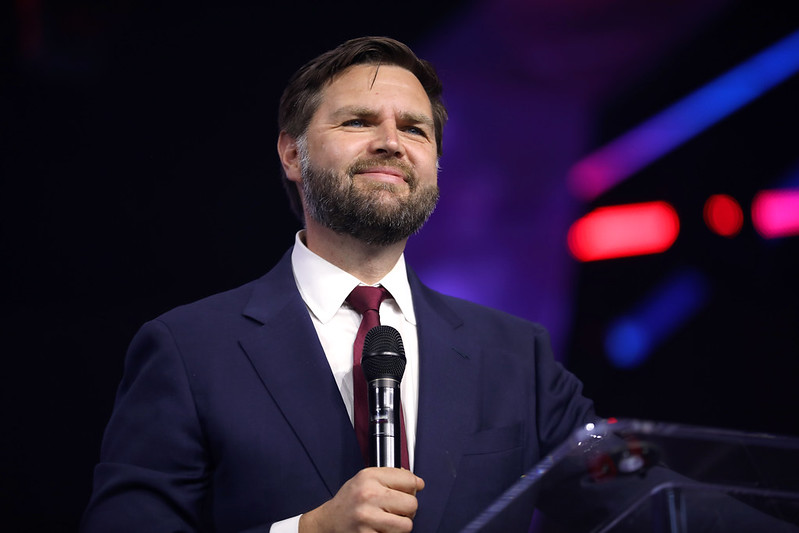At the landmark AI Summit today in Paris, the U.S. and U.K. went against the general tenor of the meeting when both countries refused to sign a declaration on “inclusive and sustainable” artificial intelligence.
Officials from the Trump administration expressed reservations about signing the agreement. It’s a communique aimed at ensuring countries develop AI that is “sustainable for people and the planet” and is “open, inclusive, transparent, ethical, safe, secure and trustworthy, taking into account international frameworks for all.” Sixty nations did sign, including France, China, India, Japan, Australia and Canada.
The United States’ confirmation of the refusal came after Vice President JD Vance (pictured) made a speech on the stage at the Grand Palais. In what was his first speech on foreign soil since Trump’s victory, Vance expressed that the U.S. will lead the way in AI development while he warned about “authoritarian” regimes’ use of AI. Read: China.
“Some of us in this room have learned from experience partnering with them means chaining your nation to an authoritarian master that seeks to infiltrate, dig in and seize your information infrastructure,” he said. “Should a deal seem too good to be true, just remember the old adage that we learned in Silicon Valley, if you aren’t paying for the product: You are the product.”
Vance also warned about European-style regulation, which he said would stifle development, allowing other nations such as China to get ahead. “The Trump administration will ensure that the most powerful AI systems are built in the U.S. with American design and manufactured chips,” he said, but added, “Just because we are the leader doesn’t mean we want to or need to go it alone.”
He compared AI advances to the invention of the steam engine, calling it a “new industrial revolution” but warned, “It will never come to pass if overregulation deters innovators from taking the risks necessary to advance the ball.” He also expressed that the Trump administration will “ensure that AI systems developed in America are free from ideological bias,” and that the U.S. government under Trump will “never restrict our citizens’ right to free speech.”
Though Vance alluded to a threat of China and made a plea for European backing, a spokesperson from the U.K. government told the media the snub of the AI agreement “is not about the U.S.” He explained, “We didn’t feel it sufficiently addressed broader questions around national security and the challenge that AI poses to it. This is about our own national interest.” He added that he “wasn’t aware” of the U.S.’s reason for not signing.
French President Emmanuel Macron said Europe is taking the “third way” relating to AI development, that of tight rules and public funding, as the U.S. goes all-out on lax regulations within the free-market approach and China puts development firmly in the hands of the state.
Meanwhile, Chinese Vice Premier Zhang Guoqing expressed that Beijing wants to play a part in setting global AI regulations and help build “a community with a shared future for mankind.” China’s equal access vision and the country’s fairly recent release of the open-source DeepSeek chatbot are seen by its critics as a threat, a way for Beijing to spread its influence in the world.
Photo: Gage Skidmore/Flickr
Your vote of support is important to us and it helps us keep the content FREE.
One click below supports our mission to provide free, deep, and relevant content.
Join our community on YouTube
Join the community that includes more than 15,000 #CubeAlumni experts, including Amazon.com CEO Andy Jassy, Dell Technologies founder and CEO Michael Dell, Intel CEO Pat Gelsinger, and many more luminaries and experts.
THANK YOU







